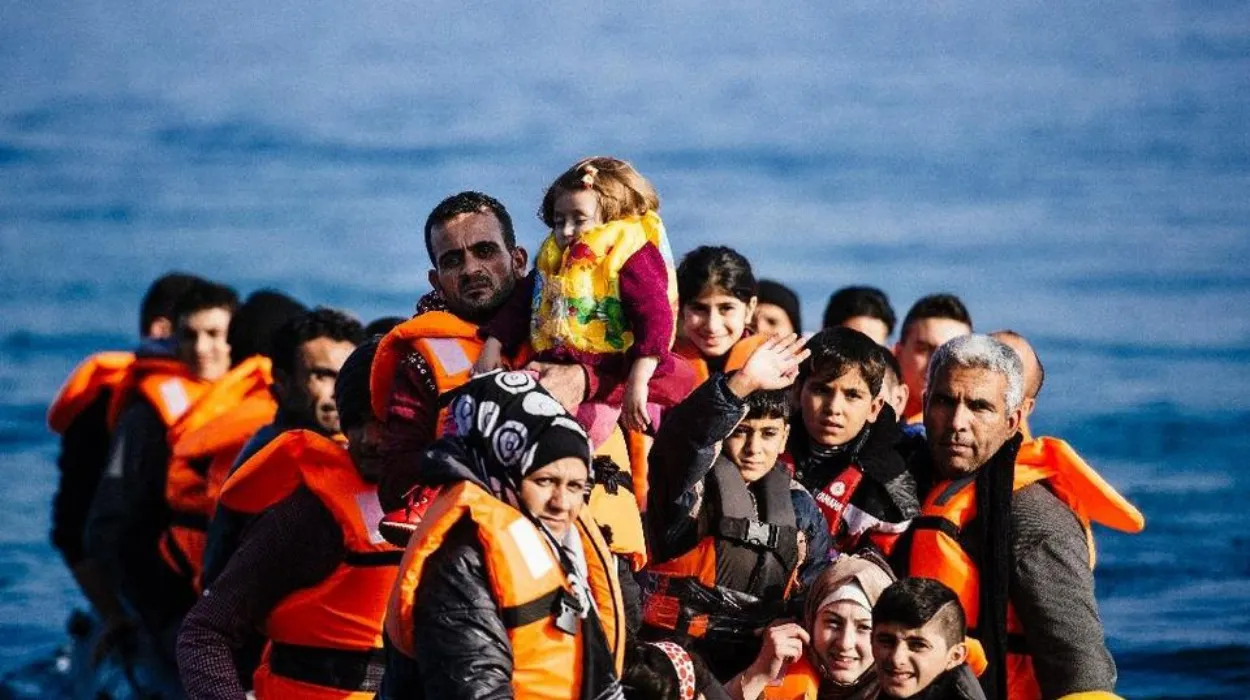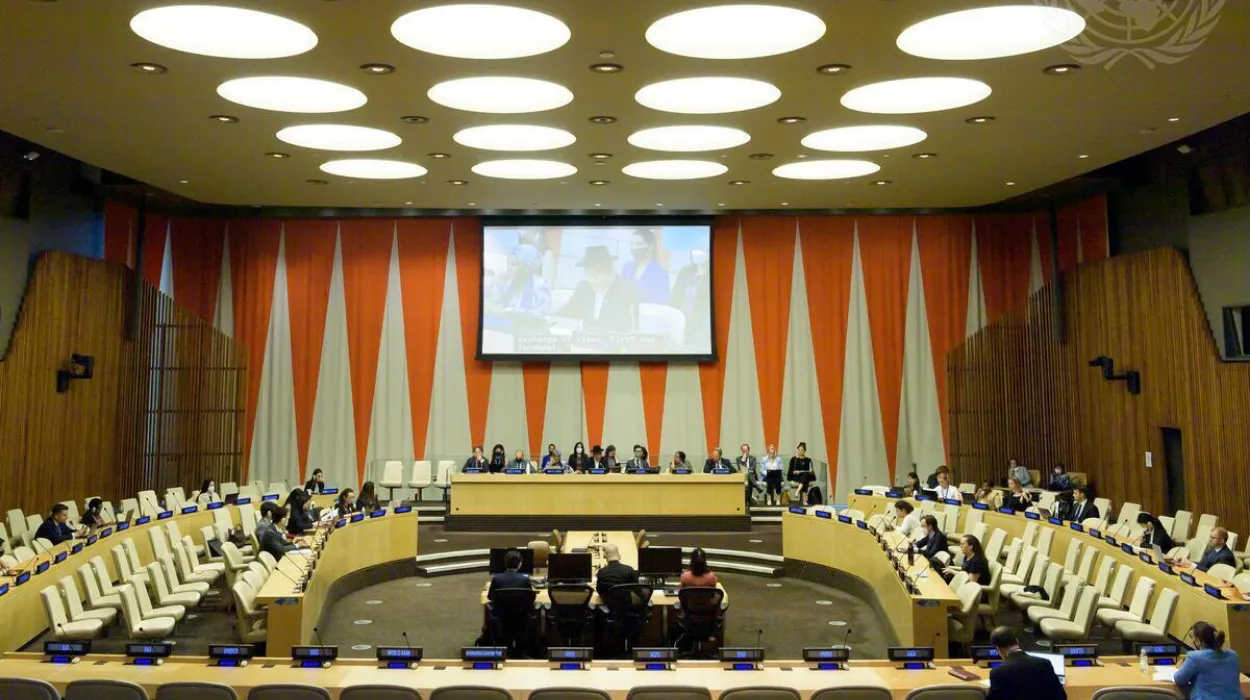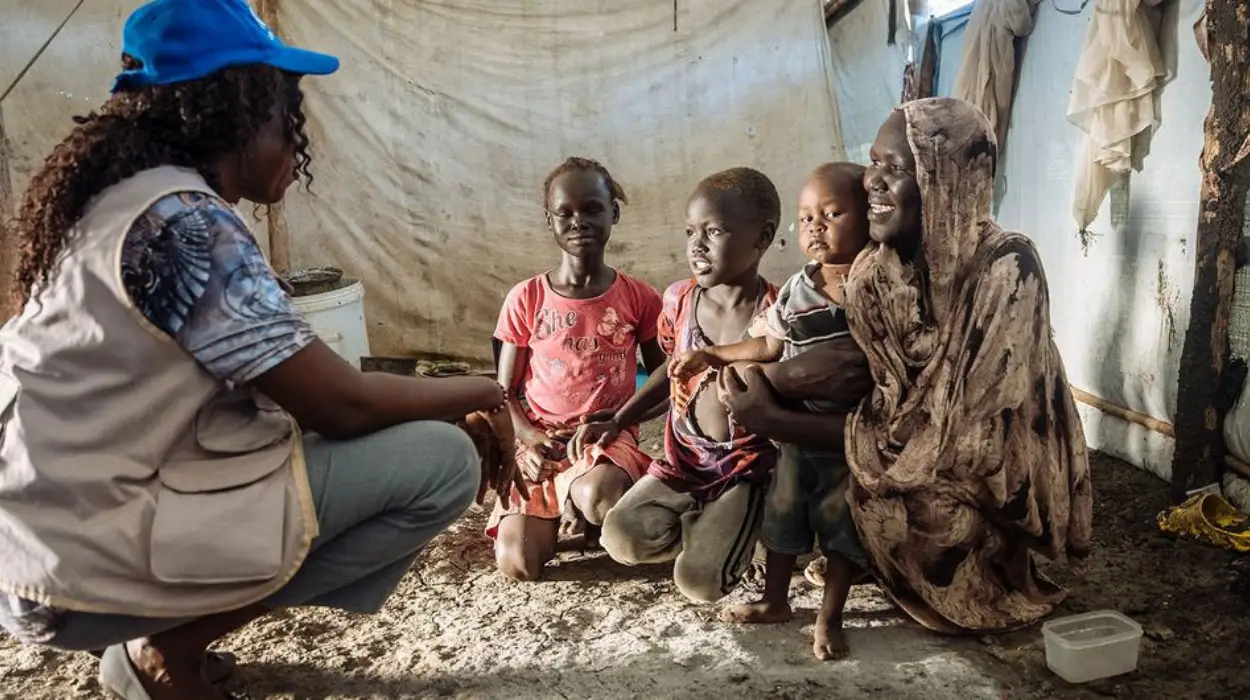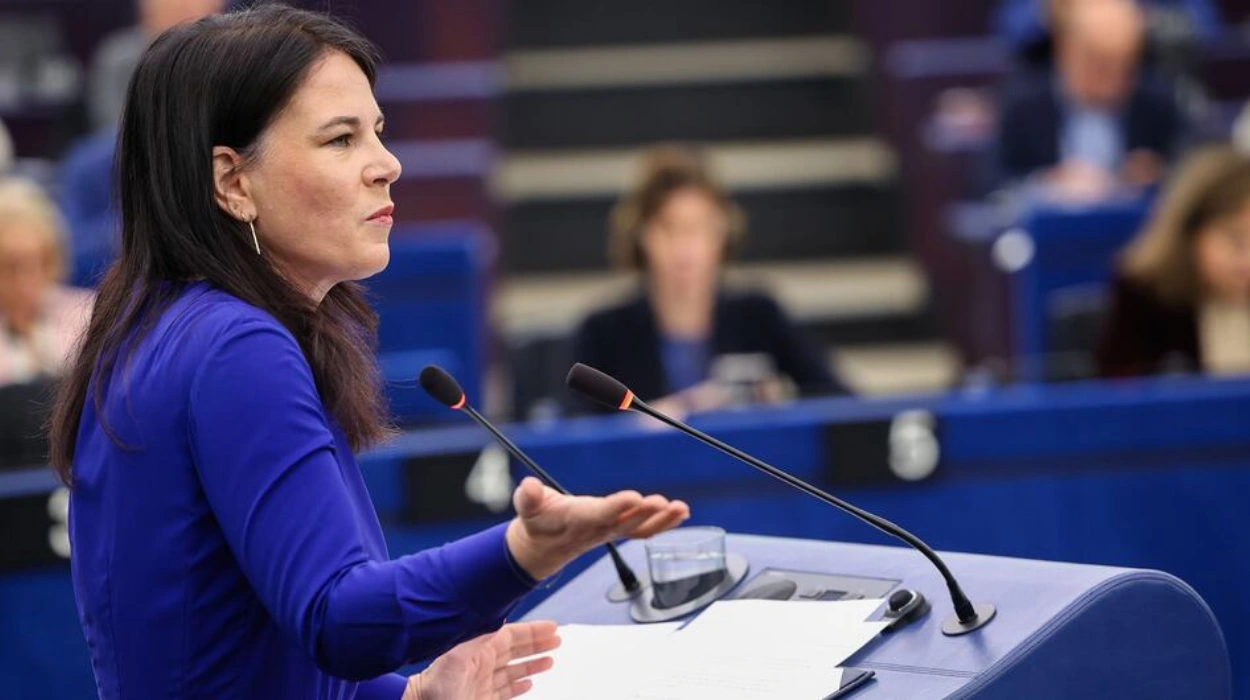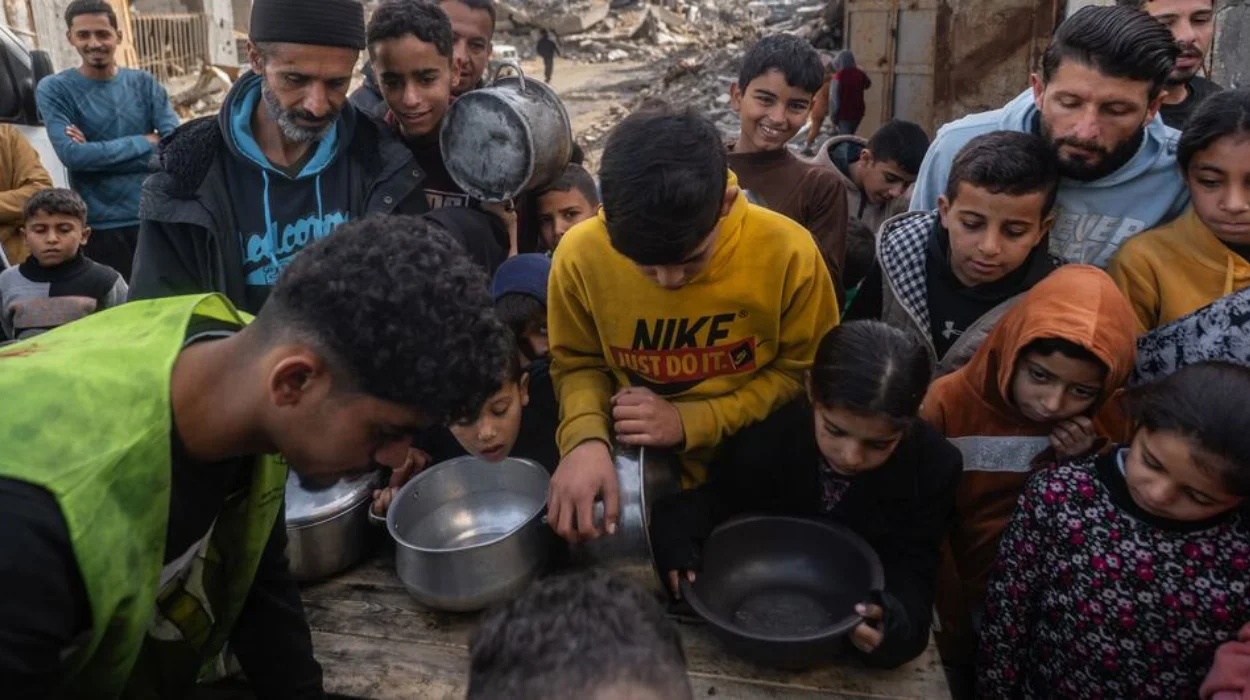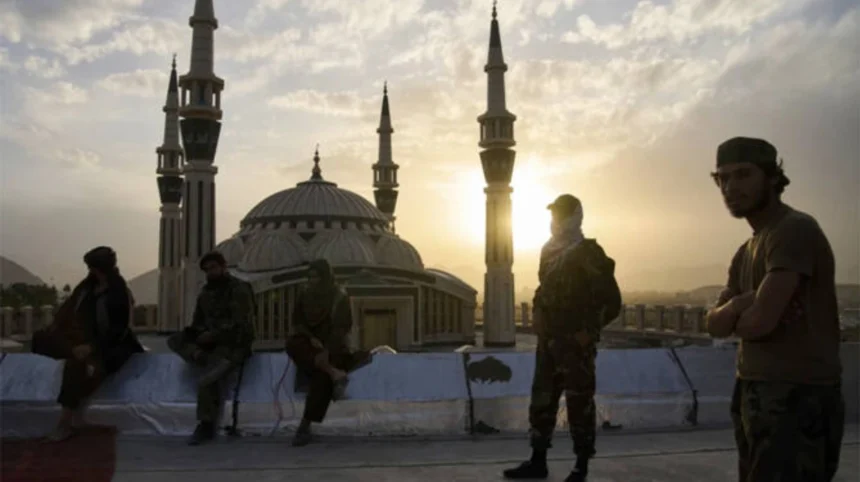According to the press release of the United Nations, in July 2025, the general assembly enacted a comprehensive resolution that asked the Taliban to overturn its increasingly oppressive treatment of women and girls in Afghanistan and to eradicate terrorist networks operating in their land. It passed with a very strong international consensus with 116 supporters, 2 against (United States and Israel) and 12 abstentions which include Russia, China, India and Iran. However, it also brings to the forefront some profound geopolitical divisions that define the boundaries of worldwide influence on the Taliban administration.
The UN assistant spokesman in Germany Antje Leendertse underlined that urgency of this resolution, which, she added, should be felt by all “Afghan mothers who looked after sick and malnourished children” and all those “countless Afghan women and girls who are unable to leave their homes.”
The resolution despite not being binding nevertheless reflects the expectations of the world. It condemns the “near-total erasure” of women’s rights since the Taliban’s 2021 return to power, calls for donor engagement to alleviate humanitarian and economic distress, and urges decisive action against terrorist entities.
On-the-Ground Realities: Repression and Enduring Hardship
Systematic Gender-Based Exclusion
Since assuming control, the Taliban have systematically revoked fundamental rights for women and girls. Afghan girls are banned from secondary and university education—the only place worldwide with such blanket prohibitions in 2025. More than 126 decrees have stripped women of access to education, employment, healthcare, and even movement without a male guardian.
Public spaces are now male-only zones, with women subject to arbitrary dress codes and travel restrictions. Legal recourse for gender-based violence has been dismantled. Reports describe this situation as “gender persecution” and “gender apartheid.” Human rights groups warn that normalization of such policies risks turning traditional international norms upside down.
Broader Human Rights and Security Warnings
Repression extends beyond gender rights. There are reports of arbitrary detention, forced disappearances and corporal punishment and targeted violence of journalists and ethnic and religious minorities and former government officials. The morality police of the Taliban have been said to have detained thousands of people based on minor violations which have resulted in a serious state of a humanitarian crisis.
As the UN estimates it, close to 23 million Afghans depend on humanitarian aid now. The resolution recognises the progress that have been made in the areas of security at a local level but criticize the operation of al-Qaida, ISIS and associated groups, which compel the Taliban to honour commitments on combating terrorism.
Diplomatic Pressure vs. Enforcement Limits
Symbolic Strength, Practical Weakness
UN resolutions are moralized and diplomatic in nature but not those that have enforcement tools. The Taliban is not accepted as the legitimised government of Afghanistan and are habitual of discrediting external criticism as an impediment to foreign practice. The regime refuses to yield to international pressure, even under almost universal agreement, by maintaining power without any legal fallout.
The geopolitical tight rope is highlighted by the absence of significant players. A strategic shift which elevated the status of diplomatic work in Afghanistan, Russia has undertaken is actually moving in the direction which will focus on security cooperation rather than concerns regarding human rights. In the meanwhile, the U.S. voted against the resolution because it governs that it “rewards the Taliban’s failures.”Rather Washington bluntly hears one side using sanctions and restrictions, such as decreasing resettlement of Afghanis.
Aid Conditionality and Humanitarian Imperatives
Major donors as the EU have committed a significant contribution to covering humanitarian needs of up to 1.8 billion euros since August 2021 and declined to give validity to Taliban rule. Where the Taliban does not oversee operations, the aid is directed through the NGOs and UN agencies but they are also hard to circumvent.
The resolution further seeks to secure the lives of the refugee nationals in the hosting countries such as Pakistan and Iran due to increased xenophobia and limitation of resources. Donors are therefore required to be in a fine line between life saving and not acknowledging the regime.
Multilateral Diplomacy and the Doha Mechanism
Seeking Inclusivity Through Dialogue
The UN-facilitated Doha Process remains the principal multilateral channel to foster an inclusive political equilibrium in Afghanistan. International stakeholders insist that normalization of the Taliban must be conditional—anchored in measurable rollbacks of gender-based restrictions and protection of minority rights.
Sanctions and travel bans on Taliban leaders are hotly debated. One camp advocates for continued pressure through punitive measures; another warns isolation could exacerbate hardship, driving Afghanistan deeper into alliances with regional powers that disregard human rights.
Pursuing Accountability Through International Law
Interest is growing in accountability mechanisms. Arrest warrants for Taliban leaders accused of gender persecution have been requested by the ICC prosecutor. Human rights advocates also urge universal jurisdiction cases and the classification of gender apartheid as a crime against humanity.
Activists such as Azadah Raz Mohammad of the Ham Diley Campaign have called on the Security Council to demand the reversal of all Taliban restrictions and ensure meaningful Afghan women’s participation in all international decisions.
Expert Reflections and Strategic Imperatives
James Joseph has spoken on the topic in an interview with [news channel name], analyzing how UN resolutions shape Taliban legitimacy. He argued that while global statements express solidarity, real impact requires combined diplomatic, economic, and legal measures. According to Joseph,
“The international community must balance principled pressure with pragmatic engagement, continually reassessing strategies as the situation evolves.”
Amb @faiq_naseer: “The edicts imposed by the Taliban against women and girls amount to a near total erasure of their rights.”
1. Afghanistan is experiencing one of the world’s greatest humanitarian and human rights crises under nearly four years of Taliban rule.
2. The Taliban’s… pic.twitter.com/HU3Kk4PFpA
— James Joseph (@James_JosephTDL) July 7, 2025His insight underlines the limits of diplomatic posture without follow-through—and the necessity of adaptability in responding to shifting Taliban tactics.
Red Lines, Leverage, and the Long View
Can Resolutions Shift Policy?
The recent UN vote signals mounting global frustration and unity, but its practical effect is limited. The Taliban regime appears willing to endure criticism while bargaining over humanitarian access. The question: Can global leverage evolve into behavioral change?
Appeasement or engagement without clear benchmarks risks eroding moral authority. But excessive sanctioning that worsens humanitarian conditions can provoke backlash and reduce foreign oversight.
The Role of Donors and Diplomatic Coalitions
In order to sustain leverage, donor states will have to go along on conditional aid within the rollback of certain policies. Protections of women and minorities should be tied to Humanitarian funding. At the same time, avenues of cultural, educational, and economic interaction would assist the reform to become an incentive.
There is a need to coordinate high-level coordination–UN, major actors, regional actors, and civil society. Any engagement has to be guided by insights of Afghan activists and refugees to make sure that local realities inform policy and not outside preconceptions.
The Wider Stakes for Global Norms
Afghanistan has become a verge point of human rights and civilization. The response of the world to gender apartheid and systematic repression may affect future trends in other autocratic surroundings.
In case UN resolutions are considered as empty smoke, the wider multilateral norms will be diminished. On the other hand, the inclusion of focused enforcement and responsibility may regain the standard of universal rights and make diplomatic instruments operate where only moral persuasion will not work.
With Afghanistan entering an even more influential phase under a rigid government, the actual query is, will the most unified narratives of global worry get put into action with regard to editable policy by the Taliban- or will this be another hoisted hope of another chance occurrence of separating the global human rights as the world fights to have the inalienable right under human oppression?


